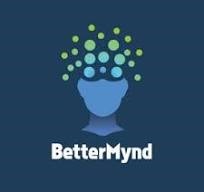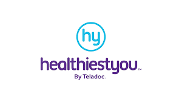On this page:
Crisis Resources

If you’re experiencing a mental health crisis:
- Contact the Counseling and Wellness Center:
- Drop-in Hours: 9:00-4:00 Monday - Friday, when classes are in session
- Call Counseling Services at 717-337-6960
- After Business Hours and on Weekends:
- Call Campus Safety at 717-337-6911 and ask the operator to connect you to the On Call Counselor
- Call Wellspan Crisis Services at 717-851-5320
- Call 911 or go to Gettysburg Hospital Emergency Room at 147 Gettys Street, 6 blocks south of campus
- Call or text 988 or chat at 988lifeline.org
- If you are a person of color who is feeling stressed, depressed, or anxious, please know you can text STEVE to 741741 to connect with a trained crisis counselor 24/7.
- If you are part of the LGBTQ community: Click Here to text, call or chat with aThe Trevor Project crisis counselor. This is a free, confidential and secure 24/7 service for individuals struggling with issues such as coming out, LGBTQ identity, depression, and suicide.
Mental Health Resources off campus:
BetterMynd: Gettysburg College has partnered with BetterMynd to provide free, confidential teletherapy for students who prefer that over coming to the Counseling and Wellness Center. Benefits of BetterMynd:
- Choose a therapist based on your preferences including area of concern, gender, language, ethnicity and more.
- Choose a time for therapy that fits your schedule with day, night and weekend availability.
- BetterMynd offers 50 minute teletherapy sessions.
- BetterMynd offers translation services in more than 20 languages
- Click here to find your therapist using BetterMy
UnitedHealthcare and HealthiestYou have partnered together to provide mental healthcare from anywhere, even while traveling internationally.* All services are free for students carrying the college’s United Health Care insurance plan; services are available for all other students for a fee. To choose a therapist and schedule an appointment by phone or video 7 days a week (7 a.m. to 9 p.m.) download the app or click here: healthiestyou.com
Thriving Campus: Looking for an in person therapist? Let Thriving Campus do the work for you! Use the Thriving Campus search tool, specifically designed for college students, to find a local therapist who meets your unique needs. To get started, Click here to find your therapist using Thriving Campus.
More ways to find an off-campus therapist:
- Contact your insurance company for a list of local providers who accept your insurance. Find contact information on your insurance card or go to your insurance company website for more information.
- Contact your primary-care doctor who may be able to provide you with a referral.
- For study abroad, contact the college's Healix resource with questions regarding traveling with prescription medications or other medical-related travel concerns. For more information about insurance in general, please visit the Center for Global Education's webpage.
General Resources
- MindApps: An up to date database of all the best mental health apps with searchable filters
- Mental Health Guide for College Students: Mental health concerns are surprisingly common among college students. This site has a wealth of resources and self-care tips for the most frequent mental health issues faced by college students.
- Seize the Awkward: Are you concerned about a friend's mental health, but don’t know how to start the conversation? This online resource by the American Foundation for Suicide Prevention (AFSP) and the JED Foundation offers information & practical conversation starters to help you take that step.
- JED Foundation Mental Health Resource Center: The Jed Foundation’s Mental Health Resource Center provides information about common mental health issues and has helpful tips on how young adults can support one another, overcome challenges, and make a successful transition to adulthood.
- Go Ask Alice! Q&A Library is a collection of resources that answer those sensitive questions you’ve been thinking but haven’t dared to ask. It provides students with reliable, accurate information and thoughtful perspectives so that you can make responsible decisions concerning your health and well-being. Provided by Columbia University.
- Top 5 mental health challenges facing students is an article on BestColleges.com. This guide helps to identify the signs and symptoms of common mental health issues for college students and where and when to seek help.
Substance Use Resources
- BRAD (be responsible about drinking) includes information on what to do for friends who have too much, effects of alcohol, alcohol and women and more.
- Gordie Center of UVA focuses on safer drinking, situational tolerance, alcohol facts, signs of overdose and more, specifically for college students.
- CARON provides substance use disorders related information and resources.
- org provides information for people who are dealing with substance use issues. including signs, symptoms, conditions, treatment options, and local resources.
- Al-Anon is for individuals affected by a friend or a family member's drinking or drug use.
Substance Use Screenings Tools
- Alcohol Screening Self Assessment
- Check-up & Choices is a free, confidential screener to give you feedback on your drinking.
- Marijuana Anonymous provides 12 questions to help you determine if marijuana use is a problem in your life. They also offer support for those wanting to quit marijuana use.
Other addictions
- The New Drug provides information on how pornography consumption affects individuals and relationships.
- SexHelp offers information about sexual addiction, a screening tool and resource for help.
- GameQuitters provides information on video game addiction warning signs, causes and a self-assessment tool.
Resources on Eating Disorders
- National Association of Anorexia Nervosa and Associated Disorders. Provides free peer support for anyone struggling with an eating disorder through the ANAD Helpline in addition to general information and resources about eating disorders.
- National Eating Disorders Association. Provides informational resources, a free, anonymous screening tool to help decide if it’s time to seek treatment and tools to help individuals find help for an eating disorder.
Sexual Assault
Sexual assault and relationship violence includes multiple behaviors that occur without consent. For more information on various forms of sexual misconduct, definitions of consent and reporting, we encourage you to visit Gettysburg College’s Office of Sexual Respect and Title IX. Our clinicians can assist you through the process of making a report to the college if you choose to do so.
Sexual assault is a traumatic experience that can leave those involved with profound long-term psychological effects. Sexual assault survivors may experience a wide range of reactions. Access to early trauma-informed support can mitigate these potential long-term effects. Clinicians at Gettysburg College Counseling and Wellness Services can be a source of support to you. Counseling is free and confidential and is a resource to everybody involved in a sexual assault, including students who have been accused of sexual assault.
Affinity Specific Resources
Campus resources
- Center for Religious and Spiritual Life
- Office of Multicultural Engagement
- Gender and Sexuality Resource Center
- International Student Services
Websites
- A Mental Health Resource Guide for Male College Students: The Good Men Project
- The MindSet Experience: A Podcast Series by Sports Psychiatrist Dr. T
- Athletes and Mental Health: The Hidden Opponent
- Campus Pride: Resources and services to support LGBTQ students and allies on college campuses
- TransLife: Peer support and resources for trans people
- Mental Well-Being for Students of Color: The Steve Fund
Self-Care Tips
Our mental health and well-being is directly impacted by how we care for ourselves. Specifically in the areas of nutrition, exercise and sleep. Here are some important ways to tend to your mental health and well-being:
- Maintain a regular sleep schedule. Aim to go to sleep and wake up around the same time each day.
- Small meals throughout the day can be nourishing and enjoyable. Avoid skipping meals altogether.
- Limit alcohol and caffeine intake.
- Raise your heart rate with 30 minutes of vigorous movement 3 or more times a week.
- Spend time outside. Plan to get outside, in nature, especially.
- Practice deep breathing, relaxation, yoga. Not sure how to do this? Try apps like Headspace, Calm or YouTube!
- Use your brain to decompress. Engage in activities that require use of your mind and that give you an emotional break: baking, making art, crochet, playing an instrument, puzzles, etc.
- Like a full belly laugh, tears down the face laugh. Nothing funny happening? YouTube has videos to help!
- Generosity: Take the focus off of yourself and do something for someone else. If you can’t do it in person, call, text or write.
- Express gratitude. Write down what you're grateful for, make a mental list on your way to class. Just don’t forget to be thankful. The brain likes it.
- Admit you don’t know. Or that you’re overwhelmed. Ask for help when you need it. We all do.

